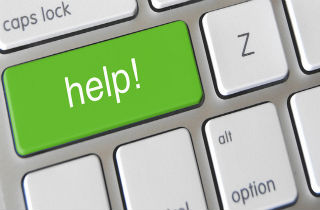By Lydia Magdeska
Friends and families of addicts are affected by addiction in many different ways and to different degrees based on personal consequences. So, what can you do to help an addict who’s in pain? And when?
Basically, NOW is the time to help anyone with a drinking or drug problem. The trick is that you need to also put the focus back on yourself. What if a book can help you get started?
The book “Self Help Manual for Relatives of Substance Abusers” by Carina Bang is a highly motivational self-guide handbook for family and friends of substance abusers. The 110 exercises mentioned in this manual can help you to find your focus, and grow as an individual.
Here, we review some of the basic concepts founded in the book, and the reasons why it’s important to check out. Then, we invite your questions and feedback in the comment section at the end. In fact, we’ll try to respond to your questions personally and promptly!
What is codependency?
Simply put, codependency is an emotional and behavioral state that results in unhealthy relationships. And according to Bang, co-dependency is “a dependence on another human that has a destructive behavior. In the same way that the addict is addicted to the drug, the relative is dependent upon that person and are trying to cope with a difficult life situation.” In fact, codependency is a common problem diagnosed in families that are dealing with an addict member.
Moreover, co-dependency can be different for each individual. Life circumstances and situations may be different. For instance, the substance abuser may be your child, parent, cousin, close friend, or colleague. Note that situations and behaviors are always various. Still, codependency tens to take on some common flavors.
Here is a list of some different codependent behaviors that you might recognize in yourself:
- allowing yourself to be hurt over and over again
- denying reality
- experiencing the feeling of being used
- having a quick temper
- living on hope
- often feeling emotions like anger, bitterness, depression, and guilt
- poor self-esteem
- putting somebody’s needs first
- regularly changing your plans and routines for the benefit of others
- showing excessive care towards another person
- spending energy on somebody else
- taking responsibilities and blame for others mistakes
- trying to solve other’s problems
Of course, these are only few behavioral patterns that relatives of substance abusers may find in themselves. Keep in mind that there are even more.
Q: Why buy this book?
A: Family and friends of substance abusers are the focus!
The main focus of this self-help guide is put on friends and families. This manual doesn’t provide information about substance abuse, and it’s not an aid kit for addicts. Its main goal is to help addicts’ friends and family members to understand that they are number one in their own lives. The book aims to enable them to free their own potential and to help them grow as individuals.
Moreover, this self-help manual will help addicts’ relatives to find harmony in life, to reach a better balance, because life is also here, and now. Each life is a responsibility of the person who’s living it. It’s a high time family and friends of substance abusers to start living their own lives.
Another great focus of this book is the self evaluation exercises. The manual lists 110 simple, but very valuable exercises that will definitely help each person who is connected with a substance abuser.
Letting go of control and learning to say no
I believe that learning to say NO and letting go of control are the most valuable lessons that you’ll learn from this book. If we still put all our energy, thought, and time into solving a drug abuser’s problem(s), we won’t be able to reach the quality of life we want. How do you do this?
First of all, you, as a relative have to find your own way of letting go of control. Some people set boundaries, and strict routines to follow, while others take drastic actions like breaking contacts, or traveling. No matter what choice you make, you have to take your own circumstances into consideration, and ask yourself what is possible for you to do in order to free and take care of yourself?
Second, have in mind that society has a numerous public services for caring and helping people with addictions. Remember that you, as a relative, are not a therapist, nor a social worker, nor an addiction professional. You are a close friend, or family member who can give a precious support.
Moreover, stop feeling quilt and learn to say no. Now, the spotlight is on you, and it’s your turn to grow. To say no to things that drain your energy means that you make room for other things that are more important for you.
Closing thought
The big plus of this self-help manual is that it’s full with exercises rather than theory. Everything is put into practice! Also, the style is simple, and easy to understand.
Even though this book is an excellent guide to relatives of substance abusers, I’ll recommend that everyone interested in addiction recovery can read it. What I like the most about this self-help manual is that its exercises are applicable not only to families of substance abusers, but also in all fields in your life. As a teacher, I will definitely use some of the exercises into my classes.
Wondering where you can find “Self Help Manual for Relatives of Substance Abusers”? To buy, download and read the book, check this link: http://www.amazon.com/gp/product/B00AC7RQEE?keywords=Carina%20Bang&qid=1450247254&ref_=sr_1_1&sr=8-1.
In addition, if you have any questions about this book, feel free to post them in the section below. We also welcome your feedback if you’ve read the book, and would like to comment and share your experiences.









Related Posts